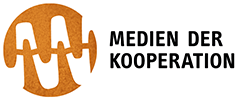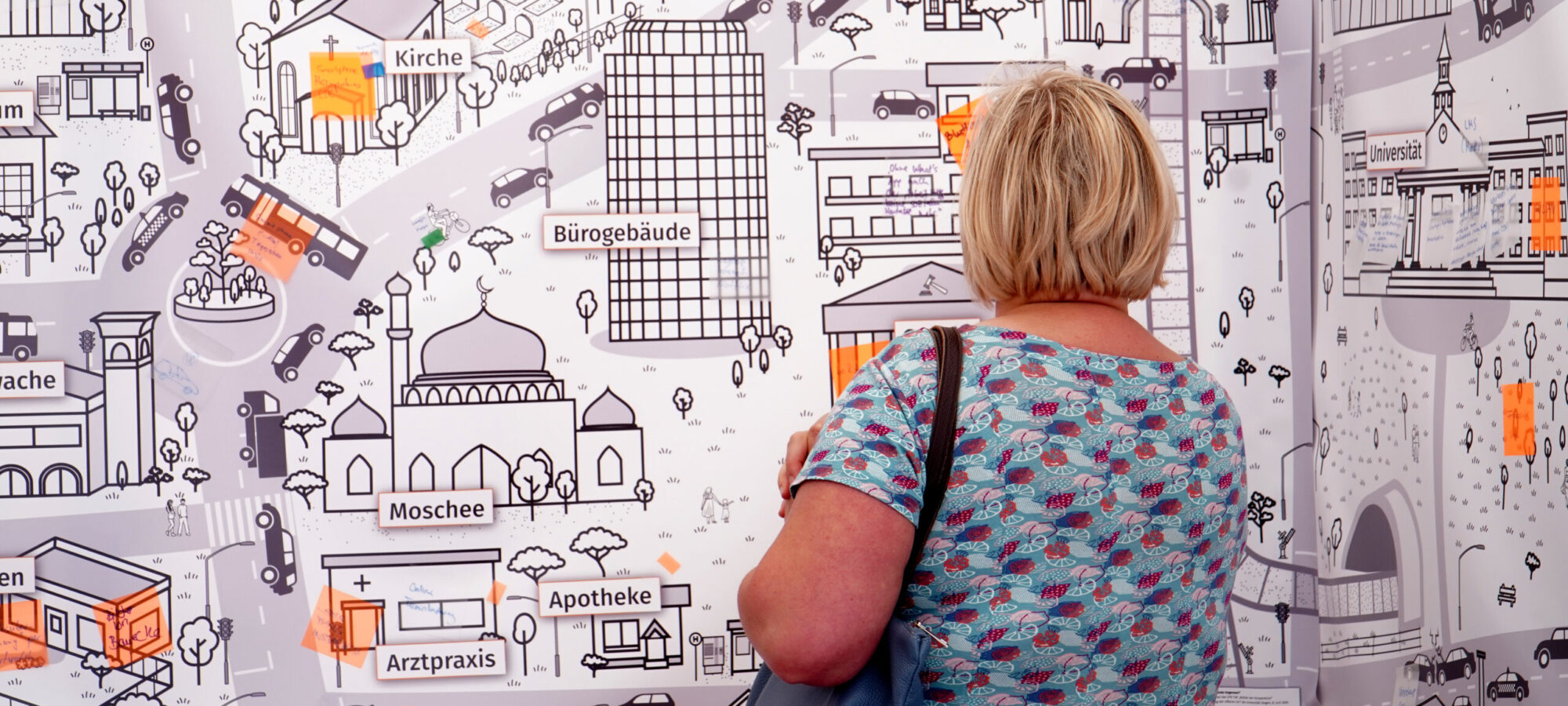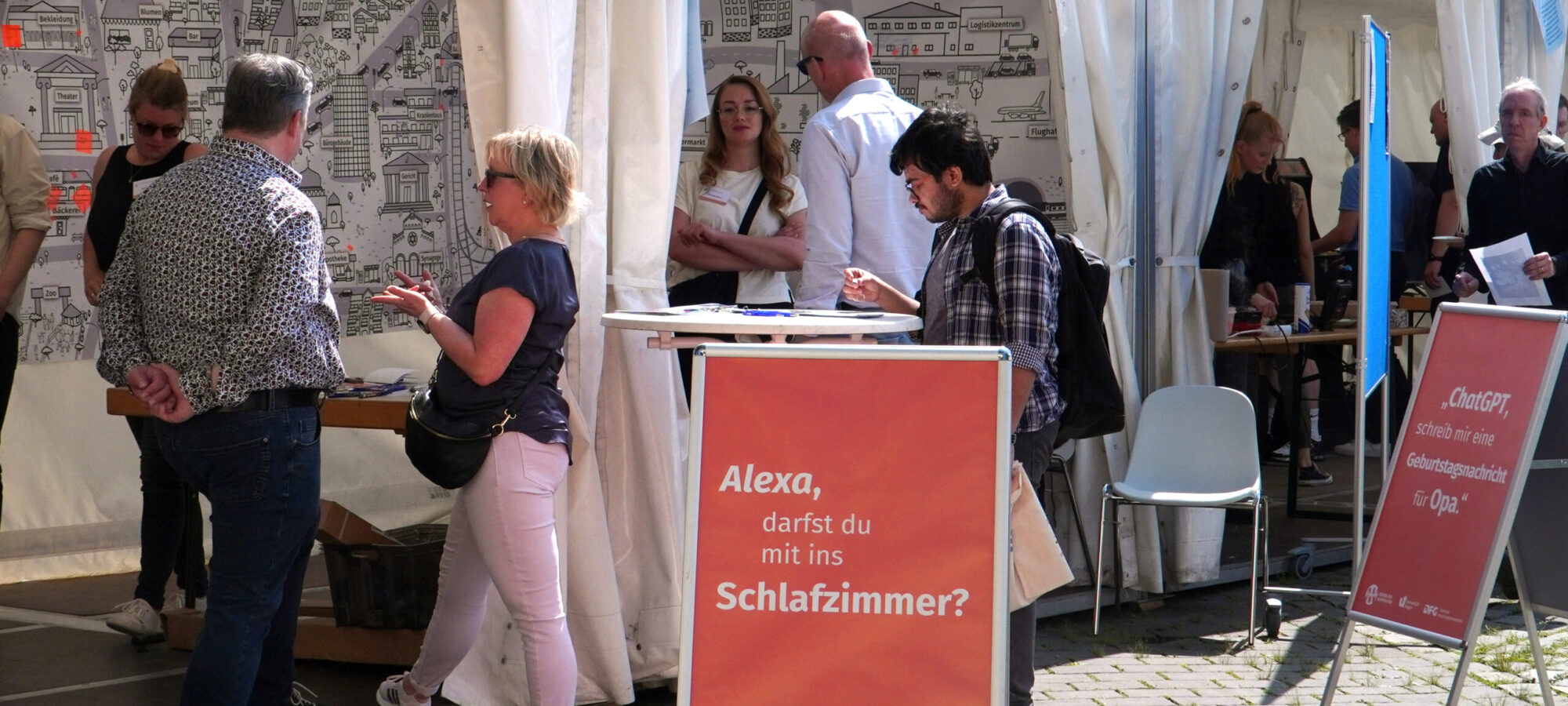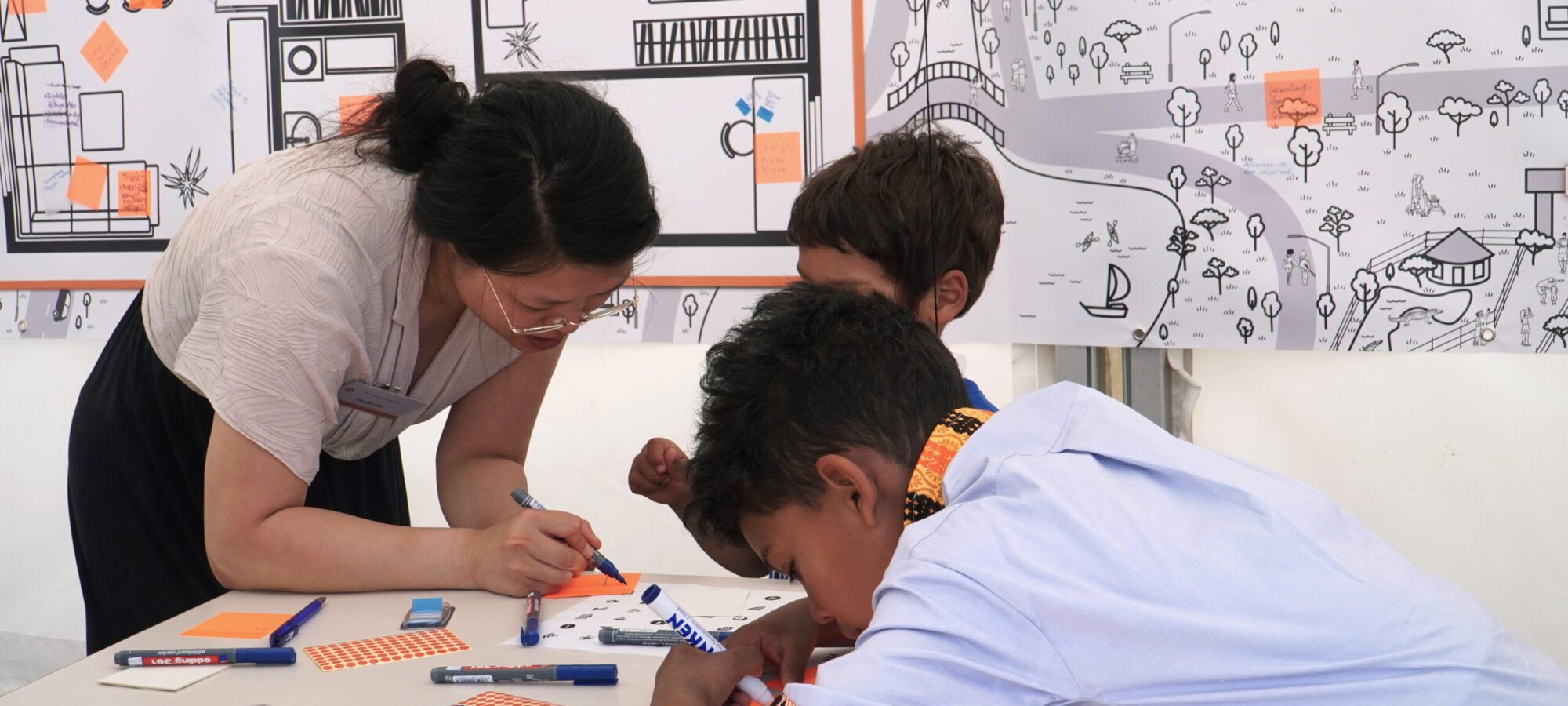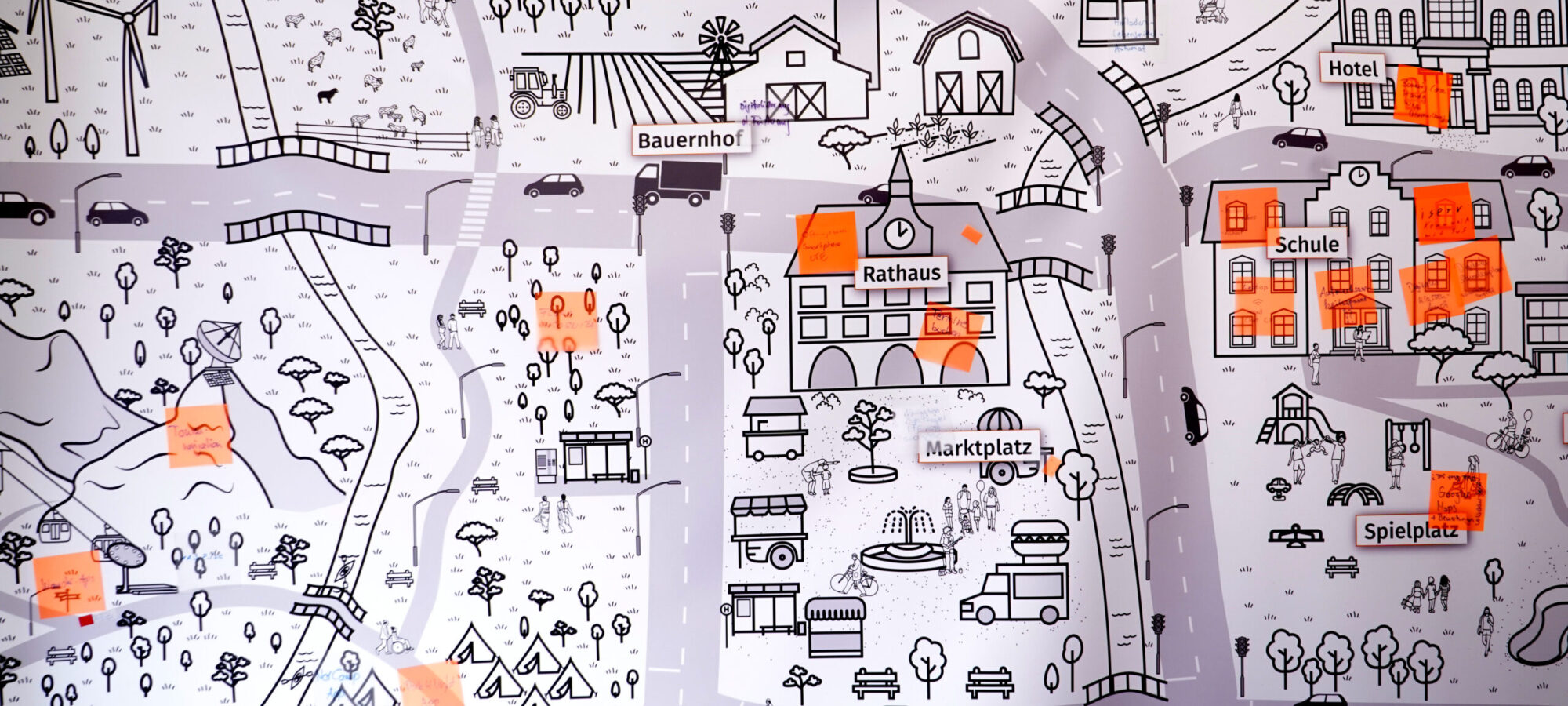News
“En/Countering Tracking: Resisting spatiotemporal media operations in computational culture”
The deadline for submissions is September 15, 2024.
Countering tracking has become a key form of resisting the logics of computational culture. Subversive encounters have emerged in recent years as counterpoints to the hegemonic logics of web infrastructures (Christl and Spiekermann 2016), platform labor (Heiland 2021) and racial capitalism (Russell and De Souza 2023). These attempts to counter tracking take forms that range from investigative visualizations (Fuller and Weizman 2021) or provoking glitches in tracking infrastructures (Leszczynski and Elwood 2022) to uncovering web-based tracking (Sharelab 2015), building counter-infrastructures for labor resistance (Qadri and D’Ignazio 2022), or using sensors and satellite images for critical investigations (Ballinger 2023; Boyd et al. 2018).
Countering tracking becomes a resistant media operation itself, disentangling hegemonic spatiotemporal regimes and their socio-political forces. These forms of countering tracking challenge existing theoretical approaches to the critical analysis of tracking and open up new perspectives on subversion and resistance in computational culture. How is countering tracking by means of tracking possible in different contexts and in relation to software, infrastructures and aesthetics?
We invite critical encounters through and of tracking, enabling new perspectives on computational infrastructures, software, (non-)human aesthetics and operative interactions, by means of theoretical reflections, critical making or activism. We aim at gathering submissions that 1) render existing tracking operations perceivable; 2) disrupt tracking infrastructures; or 3) operationalize tracking itself for resistance. The special issue invites theoretical, conceptual and performative approaches from fields such as media studies, visual studies, artistic research, sociology and critical geography to address the question of how tracking becomes a repressive, subversive or activistic media operation.
Topics and projects might include:
- Inventive methods that repurpose tracking infrastructures, sensors, software and data to research computational culture
- Detailed empirical and critical studies exploring the relations of en/countering tracking in computational culture
- En/countering tracking in labor resistance and platform capitalisms
- Critical theoretical conceptualization of tracking or countering for the study of computational culture
- Critical explorations of the chronopolitics, timescapes and spatiotemporal regimes of tracking
- Activist media, countersurveillance, tactical media, decolonial, (glitch) feminist and resistant epistemologies of tracking
- En/countering relations between political economy, racialized capitalism and tracking
- Visual cultures, (in-)visualities and aesthetics of en/countering tracking
- En/countering tracking in media art and artistic activism
Schedule:
750-word abstracts should be emailed to en_countering_tracking@uni-bonn.de by September 15, 2024. Abstracts will be reviewed by the special issue editors and the Computational Culture editorial board.
Any queries can be addressed to the special issue editors at: en_countering_tracking@uni-bonn.de
Official call for contributions | Call for contributions PDF
“The Datafied Web”:
6th RESAW Conference (5-6 June 2025, Siegen University)
The deadline for submissions is 15 October 2024.
Do you remember the beginnings of early metrics in the 90s, the birth of web counters, those digital pioneers that marked and started to quantify the pulse of online activity, the novelty of seeing website visits measured in real-time, eye-catching graphics becoming the currency of online attention, and the early days of companies like Webtrends, Urchin and DoubleClick?
We invite scholars, researchers, web archivists to contribute to the 6th RESAW conference on the topic of “The Datafied Web”, through a historical lens. We would like to delve into the historical roots, trends, and trajectories that shaped the data-driven paradigm in web development and to examine the genealogies of the datafied and metrified web. Historical studies of trajectories towards a databased web and the emergence of platform-driven mobile ecosystems are very welcome, as well as case studies for instance related to the development of Application Programming Interfaces (APIs) and the evolution of data-sharing practices. Uncovering the early forms of analytics software, their origins, and the role they played in shaping the web landscape, and examining the historical context, aesthetics and role of web counters, analytics tools, mobile sensing and other metrics may also help us deepen our understanding of online interactions, past publics and audiences, and their (uneasy) trajectories. “The datafied web” also raises questions related to methods and (web) archives allowing to research this evolution: what are for instance the challenges and methodologies involved in archiving the metrified and increasingly mobile web, including the back-end infrastructure?
This theme also invites us to trace the historical trajectory of data surveillance and the evolution of data capturing practices on the web. Complementary are issues related to the historical development of tracking mechanisms, cookies, and the creation of digital footprints, as well as the evolution of companies relying on metrics, and the development of financialized web spaces and their implications. By investigating historical controversies and debates surrounding the increasing datafication of the web and uncovering historical instances of innovative data use or resistance practices against the datafication of the web, this conference also aims at reconstructing vivid and key debates that are transversal to the history of the web. How did the datafied web provide for the sensory media environments that we are now living in?
Finally, we wish to discuss innovative research methodologies for uncovering the historical dimensions of the datafied and metrified web, as well as methods that are approaching web archives as data (from an archiving and research perspective) and explore them through distant reading, metadata, seed lists, and other methods. Plus, we want to encourage everyone to think about datafication as a practice of sensing and sense-making that creates, sustains, and undermines media environments.
Theme scope and conference topics of the RESAW Conference
We encourage submissions addressing the conference theme ‘Histories of the Datafied Web’ through the following themes:
Infrastructures
- histories and genealogies of the datafied and metrified web, including its platformization within capitalism(s)
- aesthetics and design of the early metrified web
- the rise of data surveillance and data capture as an industry
- histories of APIs, data-sharing, and advertising technologies
- the rise of web counters, web analytics, and other web metrics
- histories of trackers, cookies, digital footprints, etc.
Publics
- methods and approaches towards audience of the past web
- historical controversies surrounding the datafication and platformization of the web
- histories of uses of data or practices of resistance to datafication and platform economies
- the rise of the financialization of the web, and its political economy
- histories of automation, virality, and popular practices on the web
Archives
- archiving the metrified web and back-end infrastructure of the web
- methodologies for writing histories of the datafied and metrified web
- web archives as data (archiving and documentation, distant reading, use of metadata, seed lists…)
- web archiving data practices and challenges
After the conference, the organizers will invite relevant contributors to participate in a special issue of Internet Histories related to the topic “The Datafied Web”.
Submissions that explore other aspects both within and outside of the general conference theme, are also welcome.
Submissions for the RESAW Conference
The deadline for submissions is 15 October 2024.
Submissions are welcome from all fields and disciplines, and we would particularly encourage postgraduate students and early career researchers to participate. We also encourage contributions that highlight non-Western and non-hegemonic developments. Contributions on practical challenges of web archiving in current moments of crisis are also very welcome.
Possible formats
- Individual papers of 15 minutes (500-word abstract).
- Panel sessions consisting of three individual papers of 15 minutes, introduced by a chair (500-word abstract for each paper, a brief 300-word description of the purpose of the panel).
- Other unconventional proposals like sessions of lightning talks, roundtables, etc., are welcome (300-word abstract).
- A session “My PhD in 5 Minutes” is foreseen (please apply by providing a 300-word abstract).
Acceptance of submissions is based on double-blind peer review.
Possible formats for the pre-conference day
- Submissions related to web archives are welcome from all fields and disciplines, and we would particularly encourage workshops related to tools, hands-on, as well as training sessions and demos.
- A whole pre-conference (500-word abstract)
- Workshops, demos and other formats related to web archives practices, methods, tools, demos (500-word abstract, specifying the expected duration)
Submissions
The deadline for submissions (including the pre-conference day) is 15th October 2024.
To submit a proposal :
https://easychair.org/conferences/?conf=resaw2025
Timetable
- 15 October 2024: Deadline for submissions
- 15 December 2024: Notifications of acceptance
- 25 January 2025: Programme
- March 2025: Registrations open (fees: 90 euros for advanced scholars, 50 euros for PhD students)
- 4 June 2025: Pre-conferences and demos
- 5-6 June 2025: Conference at Siegen University
The RESAW conference is organized by the CRC 1187 Media of Cooperation in collaboration with the RESAW Conference Committee
The conference is funded in part, by Deutsche Forschungsgemeinschaft (DFG) – Projektnummer 262.513.311 – SFB 1187 Medien der Kooperation and in part by the Luxembourg National Research Fund (FNR), [INTER/DFG/23/17960744/DIGMEDIA].
The CRC 1187 offered visitors of all ages exciting insights into the everyday world of digital media and the opportunity to reflect on their own digital everyday life with an interactive stand at the “Open University”, hosted by the University of Siegen on June 8.
(© Astrid Vogelpohl 2024, TP B05)
On Saturday, June 8, 2024, the Schlossplatz of the Lower Castle in Siegen was transformed into a lively research laboratory. As part of the annual “Open University”, more than 50 stands and hands-on exhibits offered insights into various aspects of university life. The DFG Collaborative Research Center 1187 Media of Cooperation also presented a fascinating insight into our digital present. Visitors of all ages explored the CRC stand to share their own experiences with smart devices and learn more about the research investigating our digital and cooperative lives.
The centrepiece of the CRC stand was a 12m long tent wall, which was transformed into a colourful map of our digitalized world over the course of the day. Visitors used sticky notes to mark where and how they use smart devices in their everyday lives on an illustrated map of the city and their homes. From children talking about tablets in kindergarten, to students presenting their favorite apps, to pensioners sharing their experiences with digital assistance applications – the diversity of contributions reflected the ubiquity of digital technologies in our lives. CRC researchers used this opportunity to talk to visitors and gain new perspectives on their work.
The CRC 1187 stand was well received, highlighting the growing public interest in research into our digitalized society. The research centre has been studying digital, data-intensive media since 2016. The researchers are investigating how digital technologies shape our everyday lives and how people shape and use them together. The CRC’s work currently focuses on sensor technologies and artificial intelligence and the question of what influence these have on our daily lives and work. At events such as the “Open University”, the CRC aims to make its research relevant to everyday life in direct exchange with the public and at the same time raise awareness of the importance of digital media in our society.
The book Gender and Technology at Work: From Workplace Studies to Social Justice in Design, auhtored by our member Volker Wulff (project B04) and others, brings together the vast research literature about gender and technology to help designers understand what a gender perspective and a focus on intersectionality can contribute to designing information technology systems and artifacts, and to assist organizations as they work to develop work cultures that are supportive of women and marginalized genders and people. Drawing on empirical and analytical studies of women’s work and technology in many parts of the world, the book addresses how to make invisible aspects of work visible; how to recognize women’s skills without falling into the trap of gender stereotyping; how to engage in improving working conditions; and how to defend care of life situations and needs against a managerial logic.
It addresses challenges for design, including many overlooked and undervalued aspects, such as the complexities involved in human–machine interactions, as well as the need to create safe spaces for research subjects.
- Explores how work in relation to technology is mediated in complex ways by ethnic, cultural, and class backgrounds as well as issues of sexuality
- Presents views about how to build pathways to gender equality in design, addressing wider structural issues that need to be addressed when working towards design justice
- Takes an interdisciplinary approach, including literature from the social sciences, ergonomics, health sciences, computer science, and design disciplines
Our CRC member Daniela van Geenen (A03) edited together with Karin van Es & Jonathan Gray the special issue “Critical Technical Practice(s) in Digital Research” that has now been published in Convergence (Vol. 30, Issue 1).
In this special issue, they turn to ideas of and approaches to critical technical practices (CTPs) as entry points to doing critique and doing things critically in digitally mediated cultures and societies. They explore the pluralisation of ‘critical technical practice’, starting from its early formulations in the context of AI research and development (Agre, 1997a, 1997b) to the many ways in which it has resonated and been taken up by different publications, projects, groups, and communities of practice, and what it has come to mean. Agre defined CTP as a situational, practical, and constructive way of working: ‘a technical practice for which critical reflection upon the practice is part of the practice itself’ (1997a: XII). Communities of practice in which the notion has been adopted, adapted, and put to use range from human–computer interaction (HCI) to media art and pedagogy, from science and technology studies (STS) and computer-supported cooperative work (CSCW) to digital humanities, media studies and data studies. This special issue serves as an invitation to (re)consider what it means to use this notion drawing on a wider body of work, including beyond Agre. In this introduction, they review and discuss CTPs according to (1) Agre, (2) indexed research, and (3) contributors to this special issue. They conclude with some questions and considerations for those interested in working with this notion.
The issue is at the same time timely and timeless, featuring contributions by Tatjana Seitz & Sam Hind; Michael Dieter; Jean-Marie John-Mathews, Robin De Mourat, Donato Ricci & Maxime Crépel; Anders Koed Madsen; Winnie Soon & Pablo Velasco; Mathieu Jacomy & Anders Munk; Jessica Ogden, Edward Summers & Shawn Walker; Urszula Pawlicka-Deger; Simon Hirsbrunner, Michael Tebbe & Claudia Müller-Birn; Bernhard Rieder, Eric Borra & Stijn Peters; Carolin Gerlitz, Fernando van der Vlist & Jason Chao; Daniel Chavez Heras; and Sabine Niederer & Natalia Sanchez Querubin.
Last but not least, save the date: the editors will (soft) launch the issue at the CRC research forum on 10 July, 2 to 4 pm CEST with some short presentations. You can join the event either online or in Siegen! Contact Daniela van Geenen.
Links to the articles and our living literature collection (Zotero group) can be found here.
The 3rd phase (2024-2027) of the SFB 1187 Media of Cooperation focuses on sensor media’s scaling performance. The CRC’s research program covers the entire spectrum of this scaling performance, from the level of the body and micro-interaction to distributed situations of sensor data, transnational surveillance, and global data infrastructures.
“Scales of Cooperation” discusses the CRC’s cross-scale understanding of cooperation, starting from micro-situational cooperation practices to the cooperation of transnational infrastructures with their data and data practices. The SFB aims to develop a media theory of this cooperatively composed scaling performance, leading to a final conference and publication of the CRC in 2027.
To this end, the SFB will launch a first lecture series on “Scales of Sovereignty” in the summer semester of 2024, which will examine different scalings of the claim to sovereignty of various actors from the local to the global level—starting from individual media situations to the political-regulatory level of the European Union and beyond.
Scales of Sovereignty – Summer Term 2024
Digitale Politik und postdigitale Souveränität: Zwischen Technokratie, Öffentlichkeit und medialer Kontrolle?
15.05.24 | 4.15-5.45 PM | Hybrid
Lecture by Prof. Dr. Stephan Packard (Universität zu Köln)
The Double Alignment Problem – On the Transfer of Sovereignty between Humans and AI
28.05.24 | 4.15-5.45 PM | Hybrid
Lecture by Prof. Dr. Roberto Simanowski
The Double Alignment Problem Continued (part of Werkstatt Media Practice Theory)
29.05.24 | 10.00-11.30 AM | Hybrid
Workshop mit Prof. Dr. Roberto Simanowski
The Semi-Souvereign Fifth Estate
12.06.24 | 4.15-5.45 PM | Hybrid
Lecture by Prof. Dr. William Dutton (Michigan State University)
Regulating Sovereignty in Cyberspace
29.05.24 26.06.24 (new date) | 4.15-5.45 PM | Hybrid
Lecture by Prof. Dr. Yik Chan Chin (Beijing Normal University)
All events take place in hybrid form (on site and via Webex).
University of Siegen
Campus Herrengarten
Herrengarten 3
D-57072 Siegen
Room AH-A 217/218
Please register here if you want to attend online.
June 27, 2024 14:00-19:00 / June 28, 2024 9:00-13:00
In advance: individual telephone conversation to discuss reference to your own project and materials.
The aim of this master class is to experience the experimental approach of camera ethnography and to try out arranging research (with reference to Wittgenstein) together by referring to the diversity of research fields which will be represented in the workshop. Participants are encouraged to bring some of their own research material to this workshop.
Filming as an epistemic practice
In our everyday use of media, we simply believe that we can capture something with a camera and share it with each other. However, if we assume that the goal of research is to get beyond the state of what is known and seen so far, then we are dealing with epistemic things that are not yet visible at first and therefore cannot just be recorded with a camera. With this consideration, Bina E. Mohn, the founder of camera ethnography, refers to the sociological laboratory studies of the 1980s and 1990s. Starting from a premise of the not (yet) visible marks the departure from strategies of camera use that assume visibility exists a priori. Camera ethnography offers a manageable representation-critical approach based on a situated methodology and can be understood as a continuous reflexive process of working on visibility and seeing. Camera ethnography lends itself particularly well to the study of nonverbal practices and socio-material constellations. Furthermore, camera ethnography is particularly suitable for an adoption of the format “übersichtliche Darstellung” (Wittgenstein): In this context, filmic arrangements serve as an attempt to answer the question of how social practices can be lived, named, and understood here and now, and there and then. For viewers of camera-ethnographic publications, this offers an opportunity to discover unexpected things about the diversity and possibility of social phenomena and practices.
The basic book by Bina E. Mohn „Kamera-Ethnographie. Ethnographische Forschung im Modus des Zeigens. Programmatik und Praxis“ has been published in 2023, is open access and underpins this master class. Important references of the camera-ethnographic approach include Bruno Latour (science-in-the-making), Karin Knorr-Cetina (epistemic cultures), Hans-Jörg Rheinberger (experimental systems), Clifford Geertz (“thick description”), Ludwig Wittgenstein (language games and “übersichtliche Darstellung”), and Karen Barad (agential realism and intra-action).
Requirements for participation
- Experience in ethnographic fieldwork, regardless of the medium
- Readiness to change perspectives and media and to experiment.
Registration for the master class
Contact and registration: wiesemann@erz-wiss.uni-siegen.de
Registration deadline: May 15, 2024. Participation will be bindingly confirmed by the organizers by May 20, 2024. Please briefly answer these questions when registering:
- Which research project am I currently working on and which practices in this field am I particularly interested in?
- What questions do I have about media ethnographic theory and practice?
- Which materials would I like to bring to the master class on camera ethnography?
Bina will be available to make more detailed arrangements with each of you via telephone.
Venue
Campus Lower Castle
US-S 001 / 002
Obergraben 25
Siegen
Job advertisement:
SHK/WHB position in SFB subproject A04
For the subproject A04 “Normal Interruptions of Service. Structure and Change of Public Infrastructures” in the Collaborative Research Center 1187 “Media of Cooperation” we are looking for a student assistant (SHK) (m/f/d) or a research assistant with a bachelor’s degree (WHB) (m/f/d) as of April 1st under the following conditions:
- 9 hours per week
- Temporary for 16 month
- Employment on the basis of the Wissenschaftszeitvertragsgesetz
Your tasks:
- Performing scientific support activities
- Support with preparatory work for research
Your profile:
- Matriculation in the BA or MA Social Sciences program
- Interest in working in an academic environment
- Confident handling/independent work with MS Office
- Structured work, enjoy teamwork, initiative and a sense of responsibility
We look forward to receiving your application by 05.03.2024.
You can find more information about the project here: https://www.mediacoop.uni-siegen.de/en/projects/a04
Job advertisement in the job portal of the University of Siegen: https://jobs.uni-siegen.de/content/HK/?locale=de_DE
Your contact person:
Damaris Lehmann, M.A.
damaris.lehmann[æt]uni-siegen.de
Job advertisement:
SHK position in SFB subproject B06
In the sub-project B06 “Un-/desired Observation in Interaction: Smart Environments, Language, Body, and Senses in Private Households” of the DFG Collaborative Research Center 1187 “Media of Cooperation” we are looking for a student assistant (SHK) (m/f/d) as of August 1st, 2024 under the following conditions:
- Up to 5 hours per week, with the possibility of an increase from 2025
- Initially limited to one year, with the possibility of extension
- Employment on the basis of the German Academic Fixed-Term Contract Act
Your tasks:
- Preparation and transcription of audiovisual data material
- Assistance with research and investigation (including literature research and management, planning field visits)
- Support in the organization of events (including the planning and practical implementation of conferences and workshops)
- Assistance in the preparation of scientific publications (e.g. proofreading, formatting work)
Your profile:
- Ideally, knowledge in the field of conversation-analytical transcription according to GAT2 and corresponding software (Folker, Exmaralda Audacity or similar) or willingness to familiarize yourself with it
- Enrollment in a (preferably linguistic) Bachelor’s degree program at a German university
- Interest in working in an academic environment
- Confident scope/independent work with MS Office
- Very good knowledge of English
- Structured work, enjoy teamwork, initiative and a sense of responsibility
We look forward to receiving your application by 31.05.2024.
You can find more information about the project here https://www.mediacoop.uni-siegen.de/en/projekte/b06/
Please send your application documents (cover letter, curriculum vitae in tabular form, certificates) in a single pdf file to Mr. Hector.
Your contact person:
Tim Moritz Hector, M.A.
tim.hector[æt]uni-siegen.de
Der SFB und die Universität Siegen nimmt Abschied von Prof. Dr. Volkmar Pipek.
Am 6. Januar 2024 verstarb nach langer, schwerer Krankheit im Alter von 56 Jahren Prof. Dr. Volkmar Pipek. Prof. Pipek war von 2006 bis 2013 zunächst als Juniorprofessor im Fach Wirtschaftsinformatik der Fakultät III an der Universität Siegen tätig bevor er zum 1. Februar 2013 zum Universitätsprofessor für „Computer-Supported Cooperative Work and Social Media” berufen wurde. Mit ihm verliert der SFB und die Universität einen international renommierten Forscher und guten Freund.
Einen ausführlichen Nachruf und eine Gedenkseite für Prof. Pipek finden Sie hier
Unser tief empfundenes Mitgefühl gilt seiner Familie und Freund*innen.
We are looking for a scientific coordinator at our CRC as soon as possible under the following conditions: 100% = 39,83 hours, Pay grade 13 TV-L, limited until 31.12.2027.
Your tasks include, among others, designing and organising the curricular programme, jointly developing the scientific programme and organisational structure of a Critical Data School, moderating and realizing central CRC events, organising and planning of the event programme for the internal graduate school, coordinating the work of the CRC’s Executive Board and working on your own scientific contribution to area of digital media research, for example in the field of data studies, sensor media, AI, data-intensive media or similar.
If you have completed an academic degree with a doctorate (preferably in the field of cultural and/or social media research) and proven academic expertise in the CRC’s field of research, are interested in the organisation and implementation of large-scale scientific projects and are keen to contribute to an interdisciplinary team, we warmly invite you to submit your applications. The application deadline is 19 February.
Further information and application details can be found here.
1 / 10
